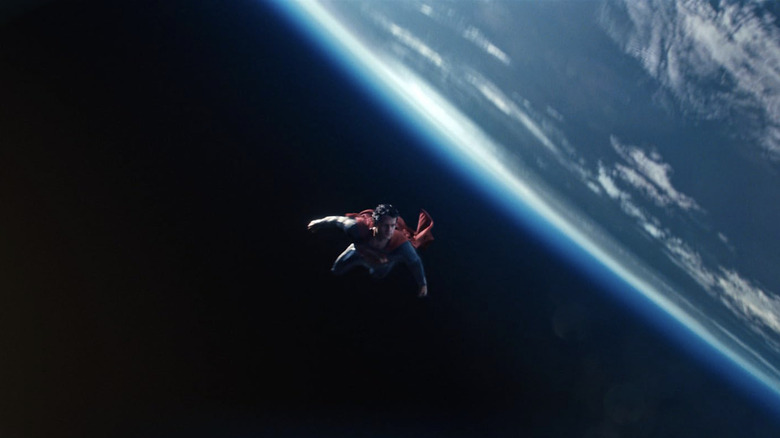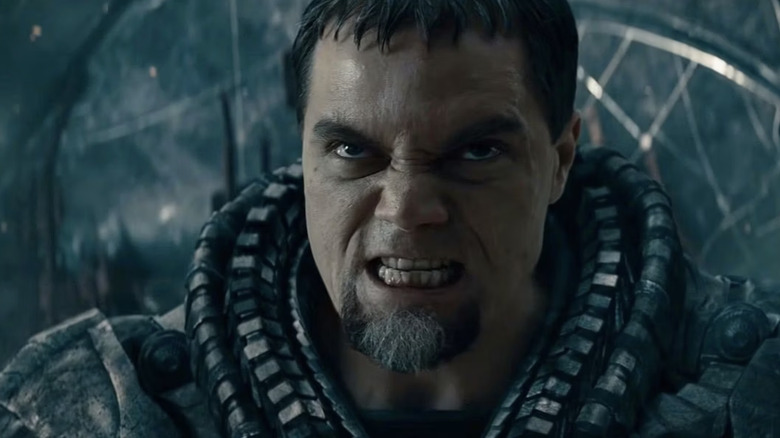The Flash Creates An Annoying Continuity Error With Man Of Steel
I've never been much of a "Man of Steel" fan, which annoys me because I would love to love it. I think it was a draft or two away from greatness, with lofty moments nestled inside a poorly-conceived structure, contradictory themes, and too noisy action. I'd also say using it as the foundation for a DC Universe wasn't the right call, but that's a story for another time.
Warner Bros. did use "Man of Steel" as their franchise foundation, and a decade on, they're trying to create a blank slate with Andy Muschietti's "The Flash." The latter film, set primarily in an alternate timeline, brings in characters and imagery from "Man of Steel" — director Zack Snyder personally gave Michael Shannon his blessing to return as General Zod. However, "The Flash" is only interested in "Man of Steel" on a surface level. A small but telling moment is when Supergirl/Kara Zor-El (Sasha Calle) — cousin of Superman/Clark Kent/Kal-El — tells Barry that Krypton was a "world of hope" and that a genocidal zealot like Zod doesn't represent her people. Going by "Man of Steel," that's not true at all.
Krypton imploded because its people started mining the planet's core, but it's implicit that their society was already doomed from its stagnation beforehand. In "Man of Steel," Jor-El (Russell Crowe) says as much when he warns the council of Krypton's impending destruction.
Brave New Krypton
"Man of Steel" reinvented Krypton. Rather than the frozen, crystalline planet of the Richard Donner "Superman" films, this Krypton might as well have been designed by H.R. Giger (the armor Zod and his crew wears is a dead ringer for the Space Jockey in "Alien"). There was also a new wrinkle to Kryptonian society — they've forsaken natural births for genetic engineering. Like in "Brave New World," every Kryptonian is designed from before birth to full a particular role. The Kryptonian birthing pool we glimpse, filled with artificial wombs and robot nannies, evokes "The Matrix" in its creepiness.
True, the "S" insignia on Superman's chest really means "hope" in Kryptonian — but that's because he's the exception. Kal-El (Henry Cavill) was the first natural birth on Krypton in generations because his parents wanted him to have the freedom to become his own man ... except Jor-El already preordained that his son would be the savior of Earth and Krypton (see what I was talking about with those thematic contradictions?) But I digress.
Zod dies in "Man of Steel" because he can't let go of Krypton — how could he, when he was created to be the planet's defender? When his plan to recreate Krypton fails, he settles for destroying Earth instead. Zod embodies the failures of his civilization; he can't grow or change as a person. Superman, on the other hand, chooses Earth because while, "Krypton had its chance," humanity still has the potential to be something better.
Hope is about looking towards a better future, not dwelling on an imagined past. For all its flaws, "Man of Steel" understands that. "The Flash," purportedly meant to pave the way for a new DC Universe, doesn't.
"The Flash" is playing in theaters. "Man of Steel" is streaming on Max.

